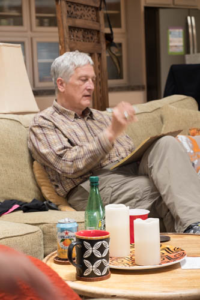
As one of the interviews being conducted regarding the history of professional coaching, William Bergquist has met with Dr. David Skibbins, an early practitioner of the coaching processes presented by Coach Training Institute. As an experienced psychotherapist, Dr. Skibbins reflects not only on the nature of co-active coaching (the foundation of CTI practices), but also the shift for him from conducting psychotherapy to engaging in professional coaching. Here is the interview:
Several major themes emerged in this interview:
- Founders of a field are often quite charismatic. Laura Whitworth was certainly quite magical in her introduction of the co-active coaching model—one of the first in the field of professional coaching.
- David speaks of the joy in working with clients who are well – rather than the pressure of working with wounded clients every day as he did as a psychotherapist.
- Co-active coaching begins with assumption that a client is naturally creative, resourceful, and whole. This perspective is aligned with positive psychology
- In David’s own experience of being coached (via co-active coaching), he found clarity regarding his own major wish: to become an author. He has enacted this wish, having published both nonfiction books about coaching and leadership, and fictional books of fantasy .
 David talks about trusting in the client’s capacity and integrity. He distinguishes this from his own assumptions as a therapist. Both the coach and coaching client must be fully present in the engagement. There are no obvious answers to be offered by the coach. David describes himself as a person without a clue about what his client wants and needs. Therefore, he must allow his clients to find their own solutions.
David talks about trusting in the client’s capacity and integrity. He distinguishes this from his own assumptions as a therapist. Both the coach and coaching client must be fully present in the engagement. There are no obvious answers to be offered by the coach. David describes himself as a person without a clue about what his client wants and needs. Therefore, he must allow his clients to find their own solutions.- David notes that the difference between coactive coaching and other more consultative models is that curiosity replaces experience and expertise. Mastery as a conceive coach, according to David, consists of being skillfully ” dumb as a brick.”
- David reflects on having the courage (along with his clients) to tell the truth, without judgment. His clients count on David being honest and straight with them even if it makes both of them uncomfortable. This means that David is often taking risks with his clients – and that he is often in the business of “good trouble” with his clients (and with the coaching profession).
1K Club

















